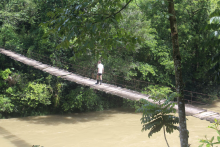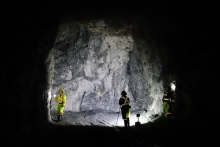Using real geochemical data from the archaeological site of Itzan, Guatemala, and computer-generated artwork, PhD candidate Benjamin Keenan has produced a video that brings ancient Mayan civilization to life.
Read the full story in the McGill Reporter.












